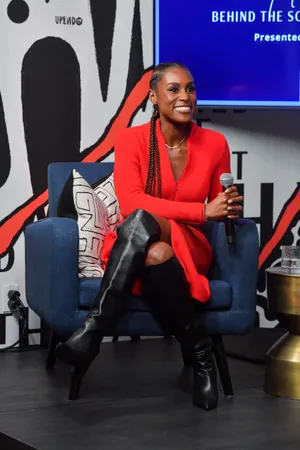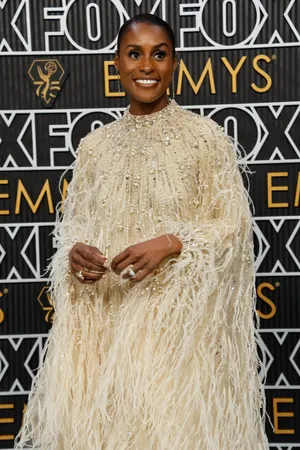Issa Rae talks 'American Fiction' reflecting Hollywood, taking steps to be 'independent'
Issa Rae is calling out Hollywood and closed-minded viewers when it comes to Black-led shows.
Rae, in a Porter profile published Monday, discussed her role in the Oscar-nominated film "American Fiction," which skewers Black storytelling tropes and touches on race, pop culture, celebrity and identity. The "Insecure" creator and star noted an alarming trend in Hollywood reminiscent of the film.
"You're seeing so many Black shows get canceled, you're seeing so many executives — especially on the DEI side — get canned," Rae, 39, said. "You're seeing very clearly now that our stories are less of a priority."

HBO recently announced after two seasons it was canceling "Rap Sh!t," the latest series created and executive produced by Rae, which followed two childhood friends making their way into the music industry.
The actress and writer said she wasn't hopeful about working with Hollywood studios and shared that she's aiming toward becoming an "independent" creator.
"I am pessimistic, because there's no one holding anybody accountable — and I can, sure, but also at what cost? I can't force you to make my stuff," she said. "It's made me take more steps to try to be independent down the line if I have to."
That pessimism hasn't soured her feelings about creating, however, despite an industry in flux post-strikes and cancellations.

"I'm writing a couple of different projects — one for myself and one to produce and create with others — and I've been feeling so inspired and excited to get back at it,” she continued. "I'm embracing that challenge. The industry is in flux, so it's really inspired me to focus and hone in on what stories I want to tell. I've been laser-focused on getting these projects up and running."
Like her "American Fiction" character Sintara Golden, Rae agreed that "ire should be directed towards the white audiences that put very specific work about Black people on this pedestal, as opposed to more diverse representations of Blackness."
She continued: "I don't think it's a secret that many white audiences and critics tend to reward traumatizing depictions, or their own biased perceptions of what Blackness is. It's frustrating."
Contributing: Brian Truitt
Why 'American Fiction'ends with an 'important' scene of Black representation. Spoilers!

Disclaimer: The copyright of this article belongs to the original author. Reposting this article is solely for the purpose of information dissemination and does not constitute any investment advice. If there is any infringement, please contact us immediately. We will make corrections or deletions as necessary. Thank you.







